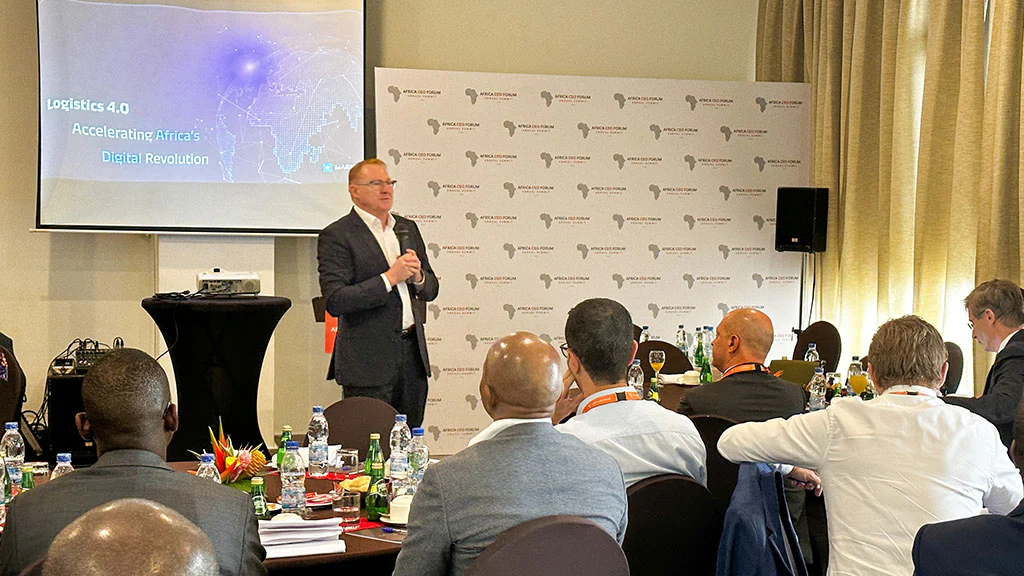Leading logistics company, A.P. Moller-Maersk, highlighted the role of digitalization in driving Africa’s logistics sector and enhancing competitiveness.
A.P. Moller-Maersk (Maersk), a global leader in integrated logistics, unveiled its presentation on ‘Logistics 4.0: Accelerating Africa’s Digital Revolution’ at an exclusive session with CEOs from across Africa during the Africa CEO Forum. The discussion centered around the transformative power of digital solutions in addressing logistics challenges and improving supply chains. With a focus on boosting Africa’s global competitiveness, Maersk emphasized the potential of digitalization and technology-driven innovations in shaping the continent’s logistics landscape.
A.P. Moller-Maersk is a globally recognized integrated logistics company dedicated to connecting and simplifying its customers’ supply chains. Operating in over 130 countries and employing over 100,000 professionals worldwide, Maersk stands as a leader in shipping services.
Digital supply chains and global competitiveness
In today’s globalized trade environment, maintaining competitiveness is vital for businesses at all levels, encompassing cost efficiency and streamlined operations. African supply chains have faced inherent complexities that have hindered the Logistics Performance Index for the continent. However, these challenges can be effectively overcome by embracing technology and digital solutions, according to Maersk.
Darryl Judd, Regional Head for Integration and Business Growth at Maersk Indian Subcontinent, Middle East, and Africa (IMEA), said, “Modern technology and digital solutions have the means to tackle the emerging challenges and inefficiencies in logistics and supply chains.” By leveraging digitalization, enhanced visibility, streamlined procurement processes, and data-driven decision-making can be achieved, thereby bolstering Africa’s competitiveness in the logistics sector, said Judd.
Unlocking Africa’s digital potential
Africa’s economic contribution to the global economy stands at an impressive USD 2.7 trillion, encompassing the 54 countries under the African Continental Free Trade Area (AfCFTA). Despite this, intra-Africa trade accounts for a mere 14% of the total trade, largely due to high tariff and non-tariff trade costs. Notably, agriculture constitutes 15% of Africa’s GDP and employs 60% of the continent’s population. However, the potential for growth lies in leveraging digital solutions such as mobile apps, digital payments, and expanding e-commerce, which can boost intra-Africa trade in agricultural produce and reduce dependence on imports, according to Maersk.
Maersk – Harnessing digital solutions for enhanced efficiency
Within the domains of ocean shipping, landside transportation, and e-commerce, the adoption of digital solutions holds tremendous promise for driving efficiency, connectivity, and trade facilitation. Maersk’s commitment to leveraging available data and generating actionable insights for customers positions the company at the forefront of digital innovation.
Judd said, “At Maersk, we are determined to leverage the data available to us by processing it in a way that we can create meaningful recommendations for our customers to mitigate disruptions, save costs, and enhance their experience.” With a suite of digital solutions already adding value to customers’ supply chains, Maersk’s next phase will center around machine learning and artificial intelligence, further enhancing their capabilities, Judd said.
For more news on how businesses are viewing the opportunities presented by AfCTA and regional logistics news, visit our archives.
